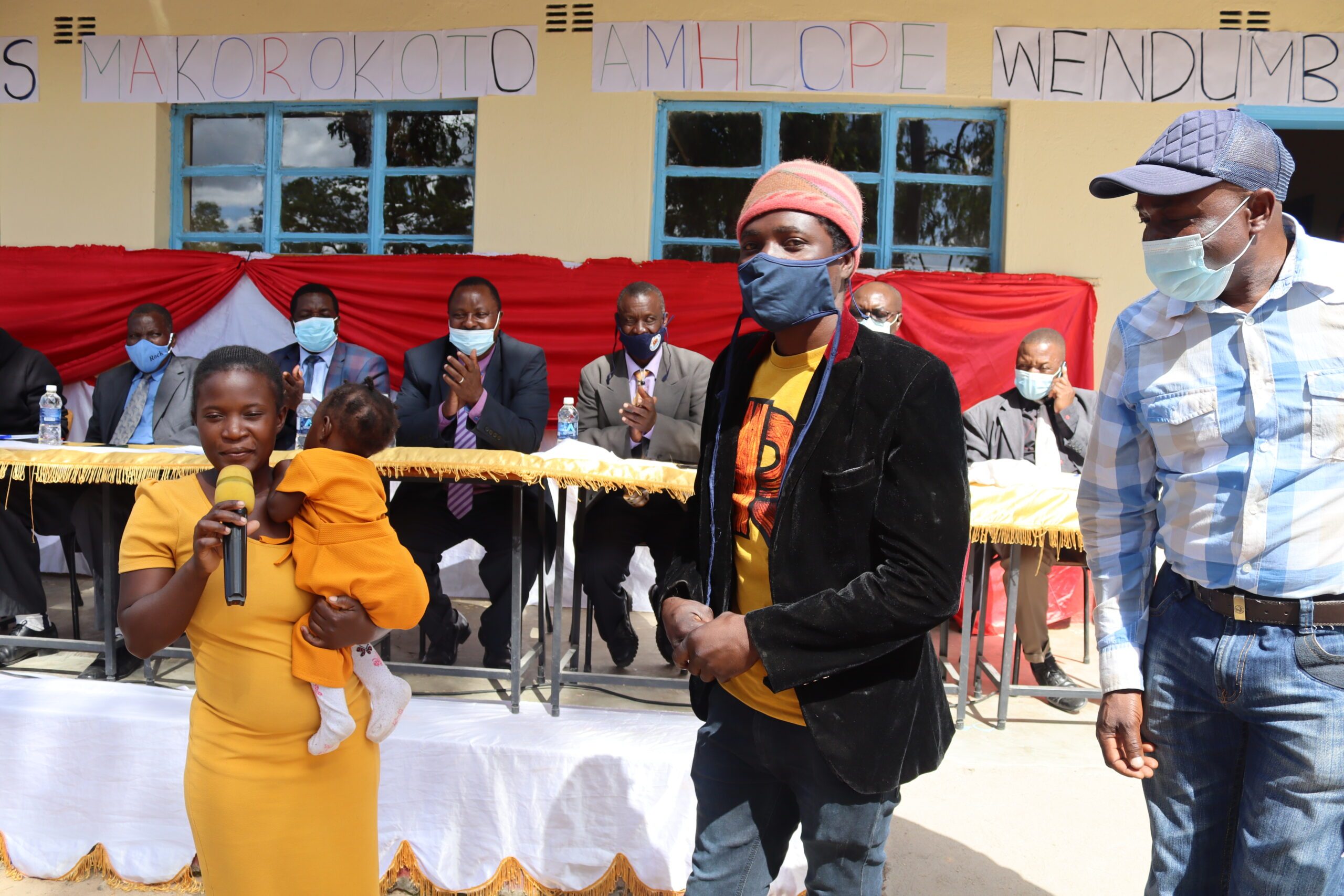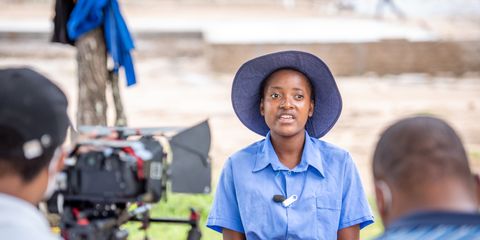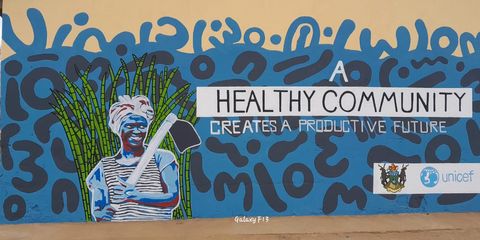Young woman transforms her family’s lives after returning to education
Marginalised young women like Jacqueline are returning to education to learn new skills which are helping them to transform their families' lives.

Jacqueline holds her baby and speaks at the graduating ceremony while her partner George looks on.
“It is good to praise and thank your partner in front of people when he is supportive of your dreams. I want to thank my husband for supporting me throughout the journey after I joined SAGE project in 2019,” says Jacqueline, a sage graduate.
The above remarks summed up the mood and the joy that Jacqueline, 22, expressed during a graduation ceremony held in her community in Mutare rural district on 17 May 2022. Jacqueline graduated from the Supporting Adoloscent Girls Education (SAGE) Programme, a UK-funded comprehensive education programme that will ensure 13,200 highly marginalised out-of-school adolescent girls between the ages of 10-19 improve their learning and can transition to education, training or employment.
I want to thank my husband for supporting me throughout the journey.
The graduation ceremony saw 26 young women graduating from a 2-year accelerated learning programme after acquiring literacy and numeracy skills, as well as life skills knowledge around gender and sexual and reproductive health and rights to assist them in making informed life choices and vocational skills which they are now applying to earn a living.
For Jacqueline, her learning journey was not easy. Had it not been for her supportive partner, George, she believes she would have quit. Being a young woman with 3 children (aged 8, 5 and 1) and walking an hour-long distance to access learning at the SAGE community-based learning centre, together with her partner, they had to overcome ingrained negative gender norms.
Breaking gender stereotypes
“How can you leave your children with your husband to attend that school? He will leave you for another woman as you are renegading on your duties as a married woman.”
“How could you allow your wife to go to that learning hub and leave you behind with children? Very soon you will hear she has a boyfriend.”
These were some of gendered questions and comments they needed to overcome in order to achieve their goal. What makes Jacqueline’s story beautiful is that they believed in each other. They rose above the negative gender perceptions and worked as partners in caring for their young family.
George supported Jacqueline to concentrate on her SAGE activities by assuming some household chores which are predominantly believed to be women’s duties such as taking care of the children and watering the garden when she was attending SAGE learning sessions.
“It was easy for me to assist as she did not attend lessons every day. She attended only 2 days a week and I just took those 2 days as my time to support my wife. My mother also played an important role as she encouraged me not to listen to what other men or people in community may say,” says George.
When asked on how he feels about his partner graduating, George said, “I am happy that she has graduated. She is now contributing some income at home from her baking and selling activities.”
Girls’ access to education shows results
Jacqueline dropped out of school without acquiring basic learning skills. She yearned for an opportunity to acquire some vocational skills, however, there were no such opportunities in their community. Her partner, George, is not employed and survives mainly from seasonal farming activities.
I hope one day we will have our own bakery in our community.
SAGE has helped in transforming lives. Jacqueline has acquired literacy and numeracy skills, and baking as a vocational skill from the project. Not only is she using her literacy and numeracy skills to enhance her baking business to earn a living, she is also transferring those skills to her own children when helping them with their school work.
George has faith in her potential in growing the baking and selling business in their community. “I am looking forward to supporting her by buying baking equipment. I hope one day we will have our own bakery in our community,“ he says.
A supportive home environment is key in helping girls to access education. The support Jacqueline received from her partner was a critical factor which enabled her to successfully complete her learning activities as a proud young woman.
Categories: Education, Skills and work


